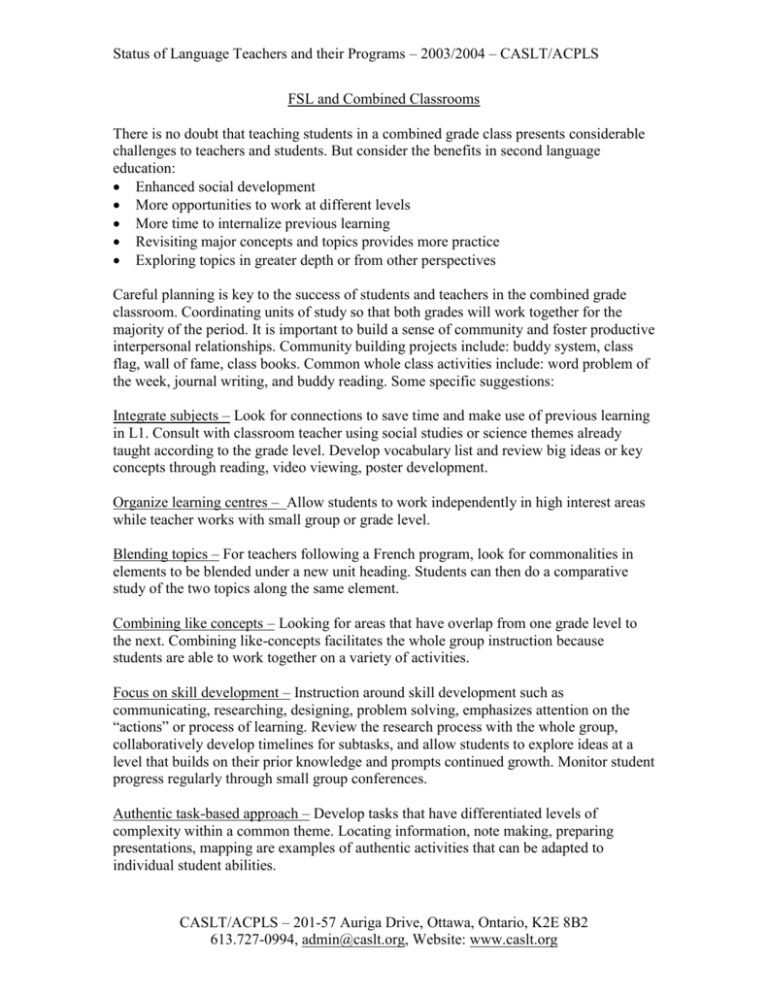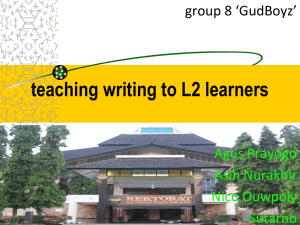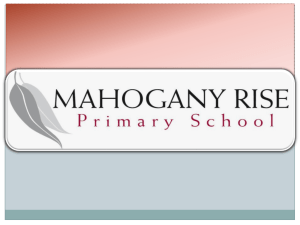FSL and Combined Classrooms - Canadian Association of Second
advertisement

Status of Language Teachers and their Programs – 2003/2004 – CASLT/ACPLS FSL and Combined Classrooms There is no doubt that teaching students in a combined grade class presents considerable challenges to teachers and students. But consider the benefits in second language education: Enhanced social development More opportunities to work at different levels More time to internalize previous learning Revisiting major concepts and topics provides more practice Exploring topics in greater depth or from other perspectives Careful planning is key to the success of students and teachers in the combined grade classroom. Coordinating units of study so that both grades will work together for the majority of the period. It is important to build a sense of community and foster productive interpersonal relationships. Community building projects include: buddy system, class flag, wall of fame, class books. Common whole class activities include: word problem of the week, journal writing, and buddy reading. Some specific suggestions: Integrate subjects – Look for connections to save time and make use of previous learning in L1. Consult with classroom teacher using social studies or science themes already taught according to the grade level. Develop vocabulary list and review big ideas or key concepts through reading, video viewing, poster development. Organize learning centres – Allow students to work independently in high interest areas while teacher works with small group or grade level. Blending topics – For teachers following a French program, look for commonalities in elements to be blended under a new unit heading. Students can then do a comparative study of the two topics along the same element. Combining like concepts – Looking for areas that have overlap from one grade level to the next. Combining like-concepts facilitates the whole group instruction because students are able to work together on a variety of activities. Focus on skill development – Instruction around skill development such as communicating, researching, designing, problem solving, emphasizes attention on the “actions” or process of learning. Review the research process with the whole group, collaboratively develop timelines for subtasks, and allow students to explore ideas at a level that builds on their prior knowledge and prompts continued growth. Monitor student progress regularly through small group conferences. Authentic task-based approach – Develop tasks that have differentiated levels of complexity within a common theme. Locating information, note making, preparing presentations, mapping are examples of authentic activities that can be adapted to individual student abilities. CASLT/ACPLS – 201-57 Auriga Drive, Ottawa, Ontario, K2E 8B2 613.727-0994, admin@caslt.org, Website: www.caslt.org





